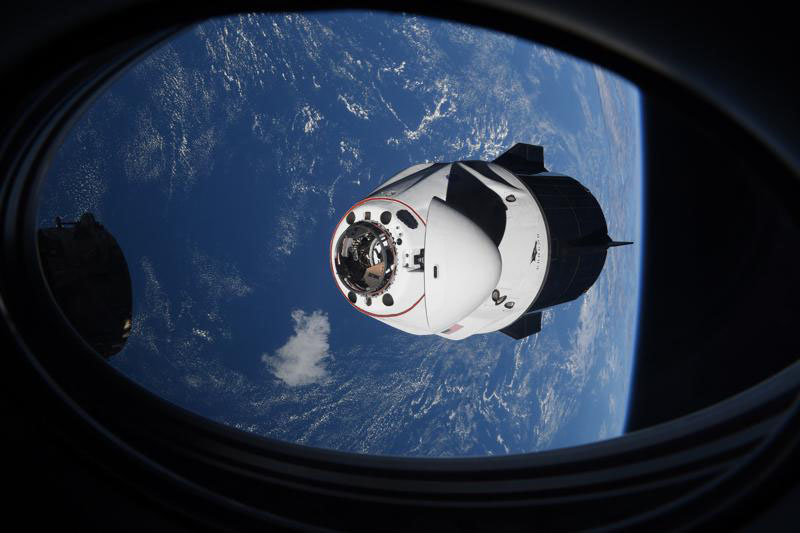

SpaceX’s four astronauts had barely settled into orbit last Friday when they were ordered back into their spacesuits because of a potential collision with orbiting junk.
It turns out there was no object and no threat, the US Space Command acknowledged on Monday. The false alarm is under review.
Lt Col Erin Dick, a spokeswoman for Space Command, said it was believed at the time that an object was going to come close to the newly launched SpaceX capsule carrying a crew to the International Space Station.
“However, we quickly realised this was a reporting error,” she wrote in an email, ‘and that there was never a collision threat because there was no object at risk of colliding with the capsule’.
She declined to comment further, saying additional information should be available later this week once they understand what happened.
Astronauts typically get a fair amount of advance notice of potential close calls, with enough time to even dodge out of the way, if necessary. Friday’s situation, however, popped up quickly — the astronauts got barely a half-hour heads-up.
The Space Command’s 18th Space Control Squadron alerted NASA about 45 minutes before the potential conjunction, according to officials at Johnson Space Centre in Houston. SpaceX and NASA notified the astronauts 15 minutes later, urging them to put on their suits right away and lower their helmet visors. By then, there wasn’t enough time to change the capsule’s path. The drama played out live on NASA TV.
The US, French and Japanese astronauts had practiced this many times before flight, according to NASA spokesman Kelly Humphries.
“Of course, we’re always happy to hear that there never was a threat, but we’re also glad the procedures were in place and the crew would have been ready if the threat had been real,” he said.
The Dragon capsule and its crew safely reached the space station on Saturday, with no further surprises. The new arrivals will spend six months there.
Based at California’s Vandenberg Air Force Base, the 18th Space Control Squadron is tracking more than 32,000 objects in orbit, mostly defunct satellites and rocket parts. Some is as small as 4 inches (10 diametres). Even something that little can do big damage to a spacecraft at high speed. The space station is particularly vulnerable because of its sprawling size.